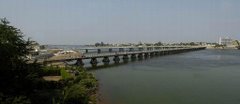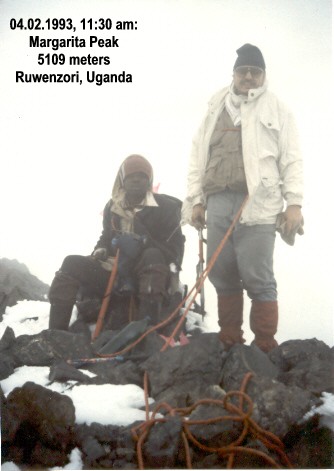Pirates, assassins and bandits did more to open world markets
Mal eine andere Perspektive, wo die Entscheidungen fallen. Natürlich nichts Neues. Nach ähnlichem Muster wurde die Apartheid in Südafrika überwunden. Nicht Botha wollte das, sondern die südafrikanische Wirtschaft benötigte ganz Afrika als Markt. Botha hat dann nur noch ausgeführt.
Pirates, assassins and bandits did more to open world markets
By CHARLES ONYANGO-OBBO
The World Trade Organisation (WTO) meeting just ended in Hong Kong. All the fireworks, as expected, were there.
The WTO meetings are the biggest on world trade. The fury with which thousands of anti-globalisation protesters gather to voice their grievances, and the passion with which delegates argue is unequalled. They are also the most democratic. Nearly every country is represented, so you end up with thousands of delegates. Then they also have tens of civil society meetings on the side.
You would think that the WTO talks actually do determine the shape of international trade. Well, think again.
Every year, a bunch of eight men in grey suits also meet to discuss the things that ail the world and the global economy. Protesters are usually kept safely away. Civil society does not even look in. Please meet the leaders of the world’s eight most industrialised nations, otherwise known as the G8.
A BIGGER more mixed group of a few hundreds also meets in Davos, Switzerland, in the bitter winter under the banner of World Economic Forum. The weather usually ensures that most protesters are frozen out, though a few diehards still brave the elements. Theirs is pure private business. It brings together the world’s richest men and women, it’s leading innovators, a handful of top Hollywood stars, and a sprinkling of interesting world leaders are also invited.
Of these three groups, the least influential in determining how the world economy works is the largest and most representative – the WTO. The next least influential is the G8.
The one that truly decides who grows rich and poor in the world is the World Economic Forum. And the world has always been this way. If the world economy had been left to bureaucrats, politicians, and activists, there would be no free global trade today.
It’s uncomfortable to admit, but the world economy was opened up by very unsavoury and even illegal methods. In the past, nations went to war to capture resources and establish markets – these were expeditions funded mostly by businesses.
Fed up by the chaotic nature of doing business this way, the money people talked to the politicians, and the result was colonialism. Colonialism was an attempt to bring more structure to the emergent global economy, and to lower the cost of doing business.
In past centuries, anti-globalisation protesters were a very different, and a tough, bunch of fellows. They had no time to campaign against farm subsidies and for fair trade. They took a cut of global wealth directly. These were the pirates, who waylaid ships and took their slice.
In an era before planes, and all world trade moved by the seas and oceans, this was a substantial take. The really bulky and valuable goods moved by rail. This gave rise to large gangs of bandits, much fancied in western films, who also redistributed the wealth by holding up the trains.
After independence, things got murkier. In general, though, big companies did three things. They bought off a leader and key officials of his government’s and then traded freely in the country. If the leader was stubborn and too nationalistic, they had him overthrown in a coup.
IF THAT failed, they had him assassinated. The latter two patterns were very common in Latin America, and resource-rich third world countries.
These three approaches probably did more to open up world markets, than all the years of WTO haggling have. Admittedly, the WTO way is the most civilised we have. But it is limited by the fact that it is dominated by people who make nothing, sell nothing, and buy little Ð if at all. So they can afford to meet for months, then break off for Christmas without a deal.
A private business manager who did that would have no job in the New Year, and also lose his gratuity cheque to boot.
Charles Onyango-Obbo is Nation Media Group’s managing editor for convergence and new products.
Artikel erschienen im "The East African" (Nairobi)
» Übersetzung ins Deutsche (rudimentär mit Google Language Tool)




Keine Kommentare:
Kommentar veröffentlichen